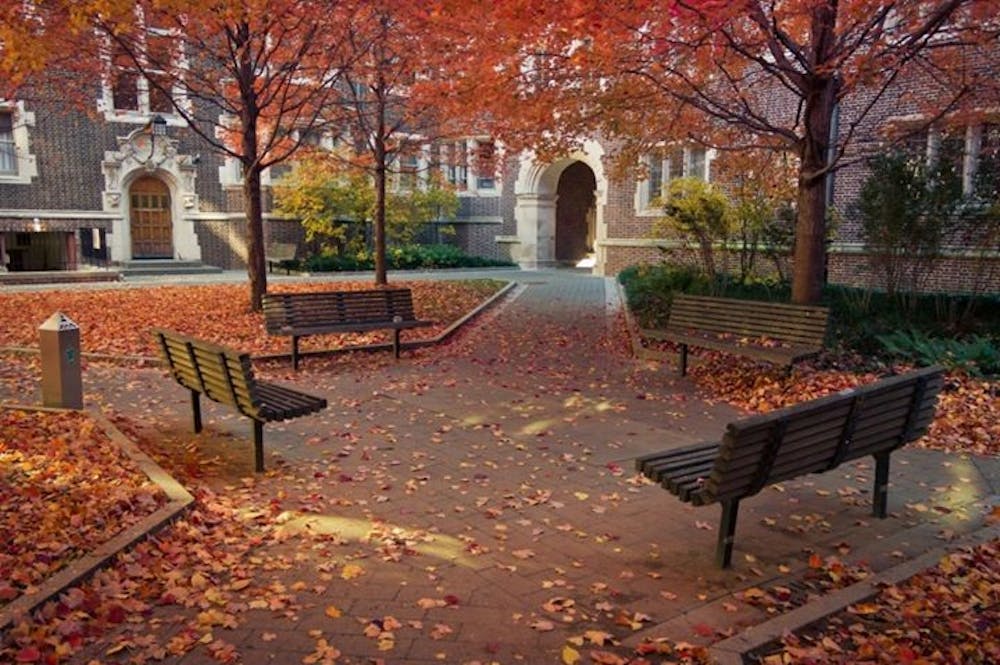With a real estate mogul, a software executive, a neurosurgeon and now a law professor running for president, the 2016 elections have shown that interest in politics can come in many different forms. While Penn boasts a healthy set of traditionally political student groups — like Penn Democrats, the College Republicans and various candidate support groups — students have many other opportunities to learn about civic engagement. These are some programs in the college houses that have created a unique forum for residential civic engagement.
Policy, Politics, and Social Change:
Based in the first three floors of McKean in Fisher Hassenfeld College House, this residential program strives to help participants understand the American political system within the context of everyday social and economic problems.
“Formal and informal discussions, speakers representing diverse multi-disciplinary perspectives from within Penn and the broader community and ‘hands-on’ volunteer experiences” form just part of the programming offered to students in the year-long program, according to its website.
College sophomore Gabrielle Jackson was drawn to these opportunities when she applied to the program the summer before her freshman year. Jackson explained that she was convinced to apply after hearing about it from someone she met at the Quaker Days Multicultural Scholars Program.
One of Jackson’s favorite residential program events was an ice breaker where students raised their hands in response to a series of questions about their backgrounds and past social interactions — questions like who was the first in their family to go to college, who spoke a language other than English at home and who considered their backgrounds privileged.
“You still feel like you know them on a deeper level,” Jackson said, adding that even if she later forgot an individual’s name or hometown, she often remembered how people answered the questions.
Jackson also credits the residential program with introducing her to her freshman year roommates, who are now among her closest friends.
“We all chose the program for pretty much the same reason,” she said, citing their mutual interests in social policy.
Women in Leadership:
Penn’s Women in Leadership in Ware College House is driven by a desire to understand the careers and accomplishments of Penn’s many successful women alumnae. Taking on a two-fold approach, it explores both the changing gender dynamics in professional environments and how real-world women used those dynamics to build their careers.
“What was their major in college and did they use their major to get there? What are the challenges specific to being a woman leader in today's world?” the Penn College Houses & Academic Services website asks.
The program’s year-long speaker series, which brings in many female Penn graduates from across the University, forms a major component of its programming. Students get the chance to hear speakers’ experiences in the workplace and how they forged their own paths as women in their respective fields.
The speaker series also provides useful networking and mentoring opportunities for students.
According to College Houses & Academic Services, Women in Leadership has 18 program members who are based in Ware.
Cultural Politics and Political Production:
Based in DuBois College House, this program emphasizes black culture and media in the context of political and historical contexts. Self-identity and community are both prevalent themes in the program’s exploration.
“Through encounters with film, theatre, spoken word, music, and museum exhibits, students will develop critical intellectual understanding of these personal and political expressions, and of their implications,” College Houses & Academic Services says of the program.
Cultural Politics and Political Production’s 33 members also collaborate with the Greenfield Intercultural Center to study the experiences of black Americans, Native Americans and other underrepresented people around the world.









